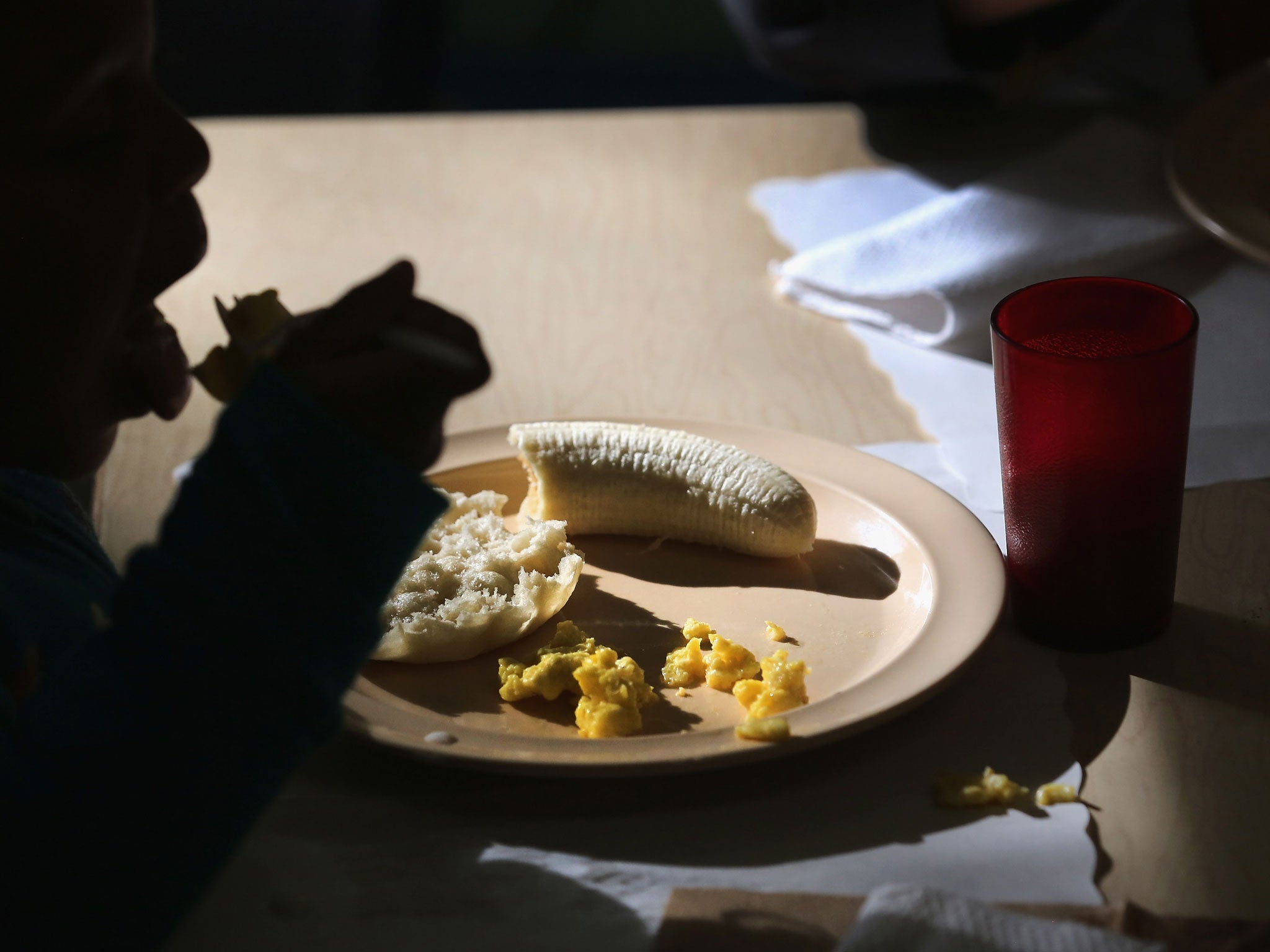Schoolchildren need to eat a proper breakfast, but should Kellogg's really be paying for it?
Tens of thousands of children are now arriving at school without a proper breakfast. So let's tackle the cause of this problem, not just the symptom


Your support helps us to tell the story
From reproductive rights to climate change to Big Tech, The Independent is on the ground when the story is developing. Whether it's investigating the financials of Elon Musk's pro-Trump PAC or producing our latest documentary, 'The A Word', which shines a light on the American women fighting for reproductive rights, we know how important it is to parse out the facts from the messaging.
At such a critical moment in US history, we need reporters on the ground. Your donation allows us to keep sending journalists to speak to both sides of the story.
The Independent is trusted by Americans across the entire political spectrum. And unlike many other quality news outlets, we choose not to lock Americans out of our reporting and analysis with paywalls. We believe quality journalism should be available to everyone, paid for by those who can afford it.
Your support makes all the difference.So many children are now arriving in school without having had breakfast that tens of thousands, especially in deprived areas, are being given free breakfasts on arrival.
So who is providing the breakfasts and why? Part of the reason for the especial concern this week is that children in Year 6, the final year of primary school, are taking their National Curriculum tests or SATs. And schools and teachers, under huge pressure to turn in the best possible results, are well aware that hungry children don’t think, reason and perform as well as fed ones.
So the charity Magic Breakfast is dishing out free pre-school meals this week to schools in cities and towns such as London, Manchester, Bristol, Bradford and Rotherham. And according to Mary Bousted, General Secretary of the Association of Teachers and Lecturers (ATL), some primary schools are actually insisting that SATs pupils come in early to have breakfast first which must infuriate the parents in those schools who can and do feed their children properly themselves.
Magic Breakfast, which gives grants to schools to run breakfast clubs, normally funds 7,500 or so free breakfasts a week. It expects to provide an extra 3,000 this week.
At the same time – what a marketing opportunity – Kellogg's is also providing 25,000 free breakfasts, mostly in deprived areas, this week.
Well, I’ve said before that I’m not sure schools should be doubling up as soup kitchens, although it is very worrying that so many children – around half in deprived areas according to Magic Breakfast – are living in such poverty that this sort of action is necessary. Yes, of course money is an issue and food prices have shot up in the last year and these increases look set to continue. On the other hand surely this is also a matter of helping people to look after their children properly – an education issue, in fact. A slice or two of bread or toast with a bit of budget cheese and a cup of tea, for example, would be manageable in many cases if parents only recognised why it matters and that it’s really worth doing.
The provision of free breakfasts is dealing with the symptom rather than the disease. It’s a short term sticking plaster solution. Obviously it's important to deal with each individual child who is hungry now, but long term we should be looking at projects which help parents to feed their children even when resources are very short. It should, moreover, go without saying that since children really do need a healthy breakfast at school to get them through the day, then it shouldn't just be during SATs week that we attend to this need.
And I worry about the involvement of companies such as Kellogg's in all this. There’s a great deal of emphasis on ‘healthy’ breakfasts for these deprived children and we are supposed to see it as disinterested altruism.
But Kellogg's cornflakes are probably not the best thing to give children. A survey last year by Which?, the independent consumer watchdog, found that Kellogg's Crunchy Nut Cornflakes contain a staggering 35 per cent sugar – at a time when we are all told that this is the world’s most addictive white powder and is likely to impact severely on the health of almost everyone because it lurks in almost all processed foods. These little yellowish-brown flakes also contain more than the 2012 maximum salt target of 1.1g per 100g and 5 per cent fat - which is higher than most other cereals. Yes, they’re fortified with useful vitamins and minerals but could hardly be termed a healthy food. Scrambled egg on wholemeal toast and a glass of orange juice would be a great deal better for these children.
Kellogg's is a commercial company. It exists to make profits. It loses nothing at all by building a taste for its products and the sugar contained within them, especially if it can do it while appearing to be commendably charitable.
It's time to be choosier about what we give them. Aren’t there any manufactures of organic muesli, free from added sugar, or egg or bread producers out there who’d like to give their name to this? And while they’re at it perhaps the same companies could sponsor, or otherwise support, projects to develop better parenting skills including budgeting and cooking for parents who find it difficult to give their children breakfast before sending them to school.
It really is alarming – indeed shocking – that in 2013, in Britain, we should still be having to discuss these welfare issues at this level.
Join our commenting forum
Join thought-provoking conversations, follow other Independent readers and see their replies
Comments